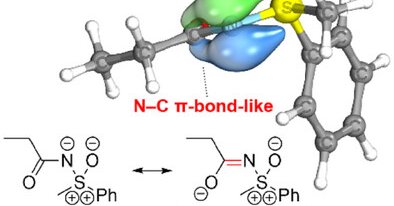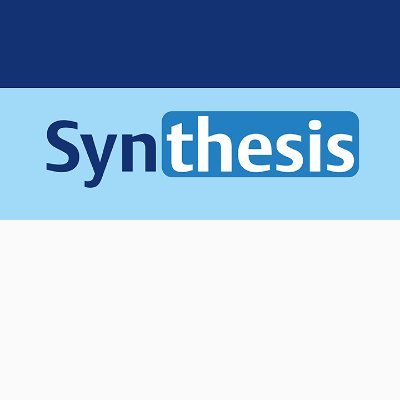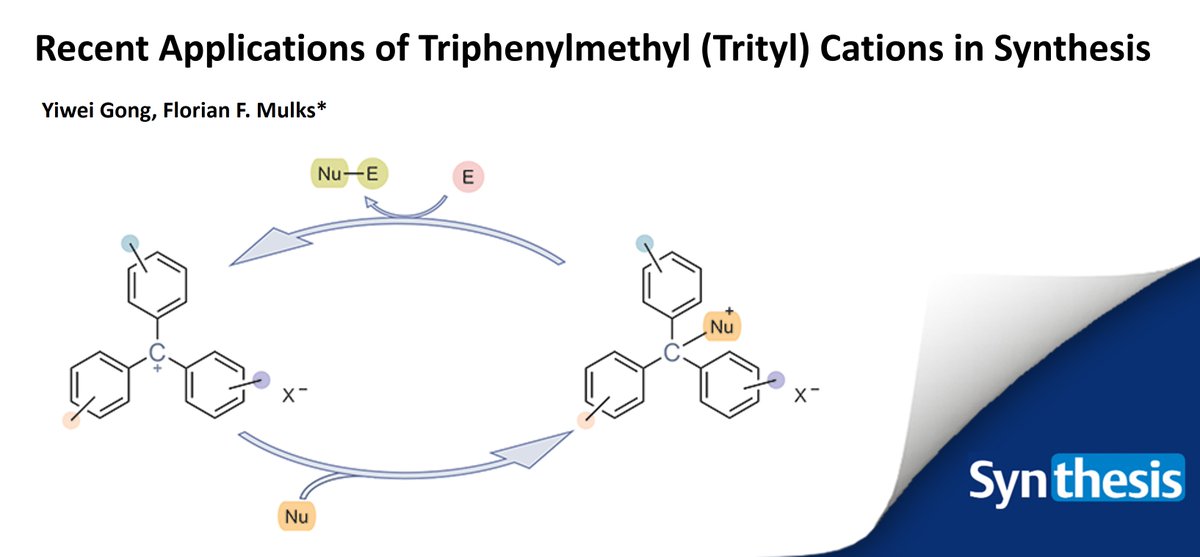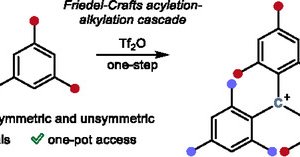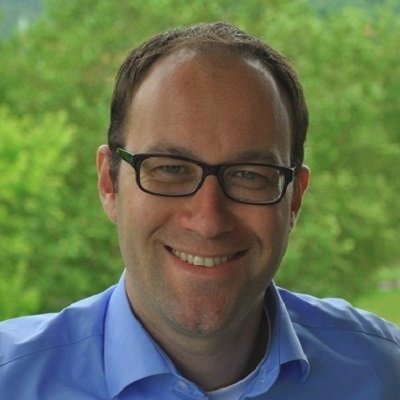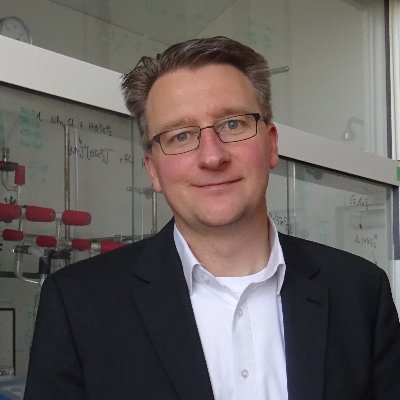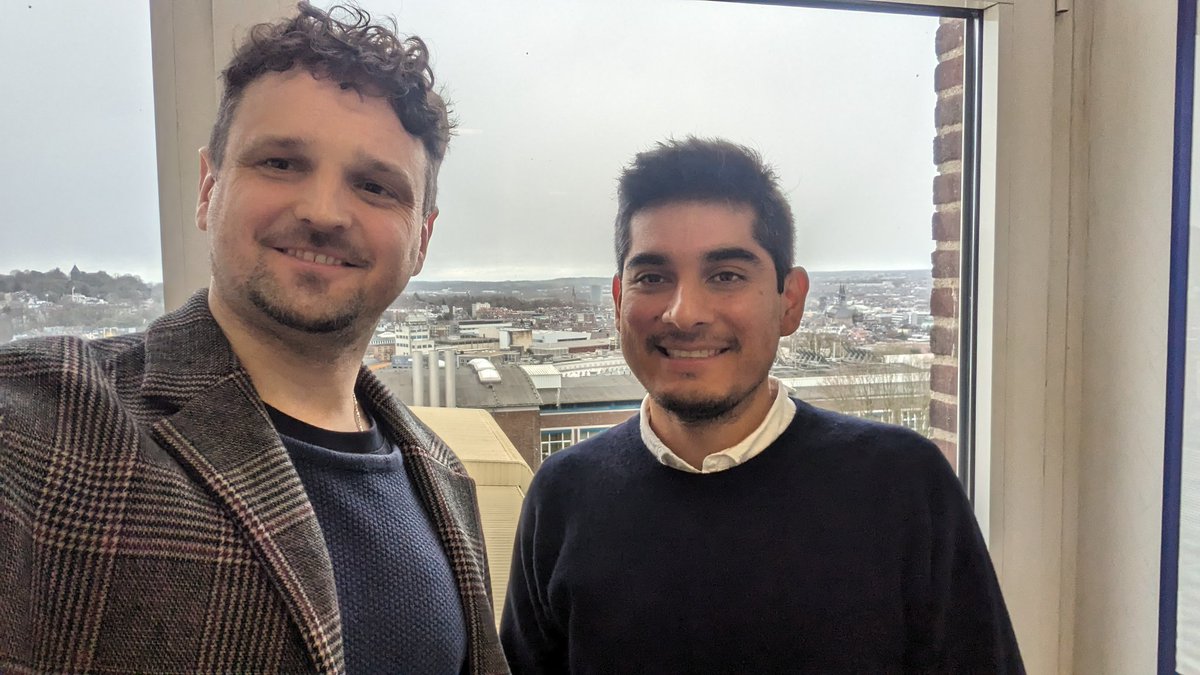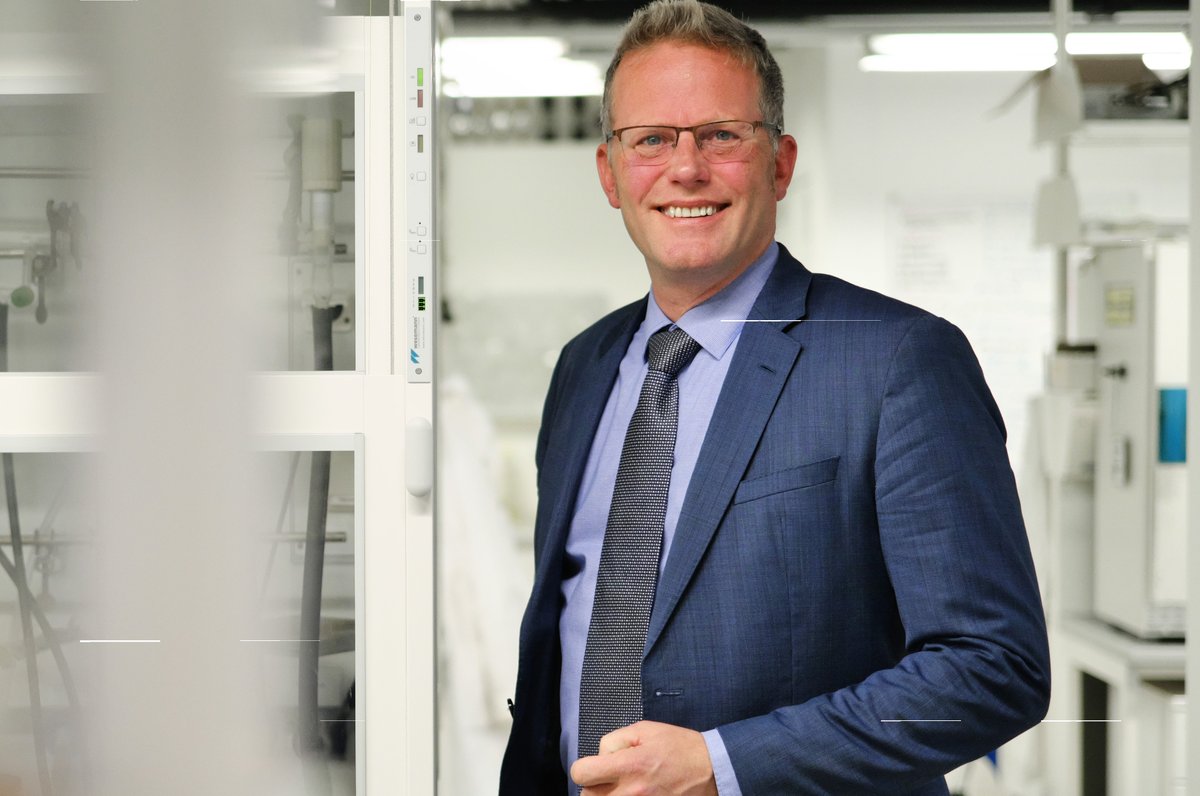
F F Mulks
@FFMulks
Followers
481
Following
966
Media
91
Statuses
474
Independent research group leader investigating organic & physical organic chemistry @RWTH funded by @chemieverband. Likes to get molecules do weird flexes.
Joined November 2014
RT @AbbensethJosh: I’m absolutely delighted to announce that I will be joining the University of Manchester as a Lecturer starting this Au….
0
4
0
Just accepted: Benjamin's deep dive into the "π-Electron Donation at the Sulfoximidoyl Nitrogen Atom". Pre-editing version: Happy to contribute to this mechanistic study in a collaboration with Carsten Bolm.
onlinelibrary.wiley.com
Density functional theory (DFT)-based evidence for a strong positive mesomeric effect (+M-effect) of the sulfoximidoyl group at N is presented. Our findings contrast with common characterizations of...
0
0
4
RT @RiedelLab: It is great to see that our review together with the Federal Environment Agency (@Umweltbundesamt) on "Rethinking Chlorine:….
chemistry-europe.onlinelibrary.wiley.com
Chlorine is essential for the production of plastics and pharmaceuticals but poses significant safety and environmental risks. Herein, processes are presented that substitute chlorine or reduce its...
0
3
0
RT @JakeyLG: 🚨📢Out now in @Chem_CP , @GalliumWu and I figure out how to perturb a non-photoresponsive reaction(🌚) out of equilibrium using….
0
22
0
RT @RiedelLab: We are absolutely thrilled that our long-term project (exp. and theory) on the heavy-atom tunnelling of fluorine has just be….
0
9
0
Our minireview on trityl cation applications hot off the press @Synthesis_1969 — carbocations are just getting started! Check it out at:
Crystalline perfluorinated #trityl cations are finally isolated, sparking a resurgence in their use💎Read the review of Gong and Mulks (@FFMulks) on these versatile #Lewisacids driving innovation in organic synthesis #Carbocation. 👉
1
1
17
RT @Synthesis_1969: Crystalline perfluorinated #trityl cations are finally isolated, sparking a resurgence in their use💎Read the review of….
0
3
0
Check out Yoshio's preview article "Strained diradicaloids for σ-bond-insertion reactions: A breakthrough in drug discovery" in Chem @CellCellPress We highlight Houk and Garg's exciting paper in print at Nature.
nature.com
Nature - A new synthetic method provides a coveted motif, the bicyclo[2.1.1]hexane scaffold, using the uncommon coupling of two strained diradicaloid fragments: transiently generated cyclic allenes...
1
3
6
Thank you to Profs. @RiedelLab, Lutz Greb, and Meera Mehta for the invitation to the special collection on modern Lewis acid chemistry and thank you to EurJIC for the invitation to the EurJIC talents collection.
0
0
2
Congratulations to Yanick Schriefers.on the discovery of a direct access to "electron-rich" triphenylcarbenium triflates via a Friedel Crafts cascade from carboxylic acids and arenes. The paper was just accepted in EurJIC. Check it out at:
chemistry-europe.onlinelibrary.wiley.com
The formation of three distinct trityl cations from benzoic acids and arenes is reported. These findings are envisioned to help design future synthetic processes to form trityl cation Lewis acids.
1
0
2
Thank you for the exciting talk and discussions! See you soon!.
Thanks for the wonderful visit I @WerzLab @UniFreiburg @FreiburgChem enjoyed at RWTH Aachen @FFMulks @Schoenebeck_Lab @LeonoriLab @ReneKoenigs @Patureau_group @BannwarthTC. A great place to do outstanding chemistry!
0
0
5
Wonderful, maybe even some organic chemists may give it a shot soon! 🙋.
Now anyone is able to synthesise it😉 Just out in @angew_chem. Easily accessible route for fluorinated trityl cations, which are stable at RT. Huge hydride affinity to activate alkanes such as n-pentane or n-butane. Great work @JohannaSchlogl and team.
0
0
1
An early Christmas present! Yiwei's update on the latest from triphenylcarbenium chemistry with a focus on applications in synthesis was published as "accepted manuscript" at Synthesis. Thanks to @Silicon_Martin for the invitation and fantastic process!.
0
1
14
Keep your eyes peeled for some exciting doctoral research positions!.
Neue Moleküle für neue Materialien: Ein Chemie-Graduiertenkolleg der Saar-Universität erhält eine millionenschwere Förderung von der Deutschen Forschungsgemeinschaft. Sprecher ist David Scheschkewitz (Foto: T. Mohr) @dfg_public:
0
0
1

